Paul Simon’s Graceland & country music’s global history
If you lived in a home that loved music in the 1990s and 2000s, chances are your family owned a CD of Paul Simon’s 1986 album Graceland. And even if they didn’t, maybe you heard « You Can Call Me Al » and « Graceland » on classic radio in the car. And maybe, you pretended you weren’t listening — but actually you loved it.

I remember long drives between the UK, where I was born, and the Netherlands, where I grew up, my parents’ radio playing in the background. As soon as I had my own CD player I’d try to block out the sounds with my own music, but I’d secretly hit pause when « Graceland » came on. Its rolling sense of motion and reflection felt suited to the journey. We’d all stare out at the road ahead and think about where we’d come from, and where we were going.
Dolly Parton meets Youssou N’Dour.
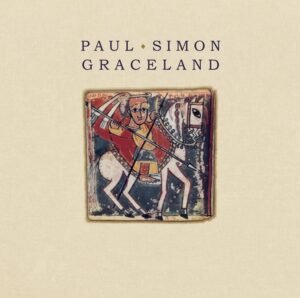
The idea to make the album first struck Paul Simon while he was in his own car, listening to a cassette a friend had given to him labelled « Accordion Jive Hits Vol. II. » Before long he was off to Johannesburg to work with the South African musicians whose songs had energized him. Since South Africa at the time was deeply entrenched in anti-apartheid freedom struggles, Simon was accused of breaching a UN-approved cultural boycott supported by the Artists Against Apartheid movement1. Some critics would question the power dynamics, and the album remains a go-to example in debates about musical imperialism and cultural appropriation. Had Simon credited and paid the South African artists fairly enough? Was Graceland extractive?
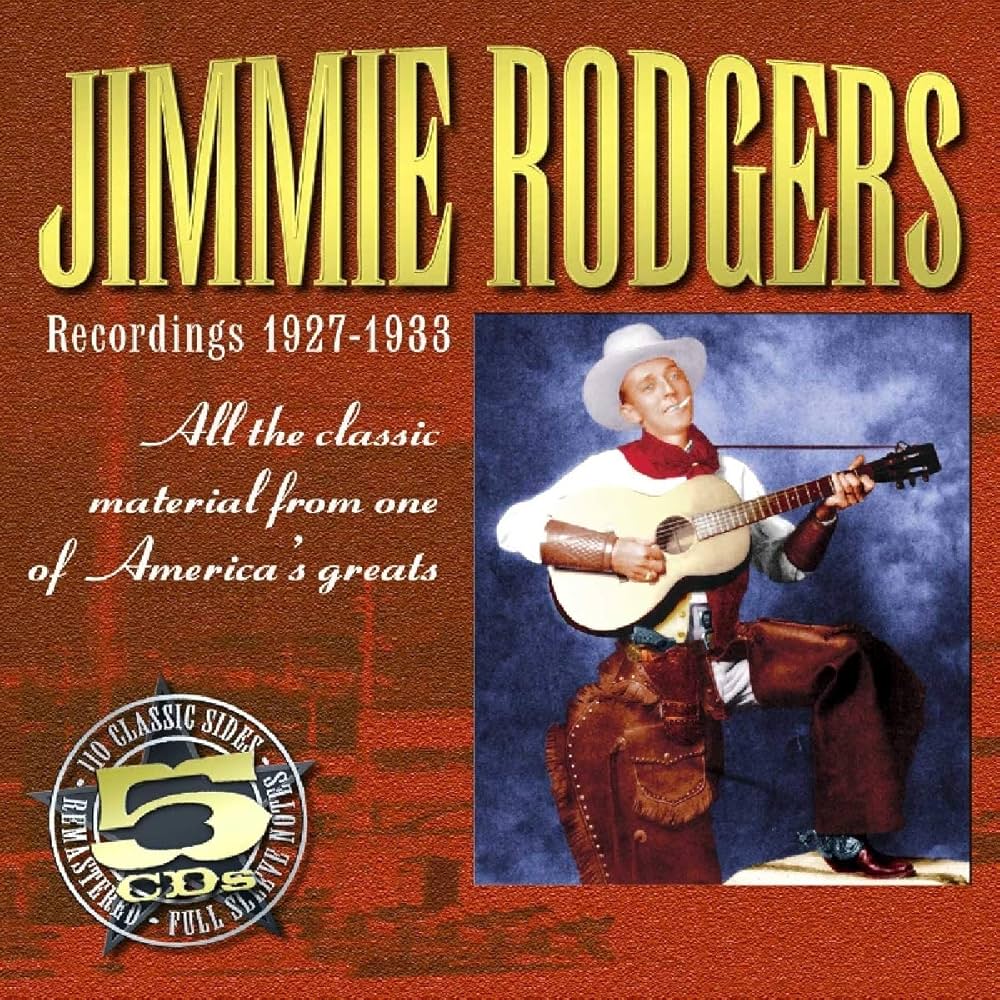
Country & Western’s unlikely first star, a yodeling brakeman from Mississippi, helped propel the genre to popularity in the 1920s and 30s. His records, widely distributed globally, left a cowboy-themed trail of influence across Southern and Eastern Africa.
Beyond those questions, though, is the album’s undeniable beauty. A shimmering transatlantic-pop masterpiece that married diverse Western and African influences, revealing their hidden connections. Even some of its fiercest critics have come to see it as a triumph of cross-cultural collaboration. My parents loved it. Their roots were in Africa and the Caribbean; their lives were in Europe, the cross-cultural sounds bridged the gaps in their CD collection and gave a soundtrack to their cross-cultural lives.
The album played at parties and family gatherings, red wine flowed, the living room became a dancefloor. Younger kids would join the adults, while the teenagers would simply look on in embarrassment. Most of the songs, like « Diamonds on the Soles of Her Shoes » or « Gumboots », moved to a South African mbaqanga rhythm, playing easily next to other African or Afro-rooted black music that has filtered into popular Western musical loops: « The Harder They Come » by reggae star Jimmy Cliff, say, or « Pata Pata » by Miriam Makeba. But that title track — « Graceland » — was different, oddly at home on the road, alongside classic country songs on those long drives in the car. Even without the obvious « country » markers — no plucky banjos or sentimental fiddles, no cowboys or pickup trucks — it felt somehow perfect next to Kenny Rogers’ « The Gambler » or George Strait’s « Amarillo By Morning ».

First you hear the rumbling drone of a fretless bass guitar atop a galloping drumbeat. The beat resembles the « travelling rhythm » — a steady, train-like pulse heard in early Johnny Cash tracks like « Hey Porter » or « Folsom Prison Blues », but rooted in the blues tradition that channeled the railroad as sound and symbol.
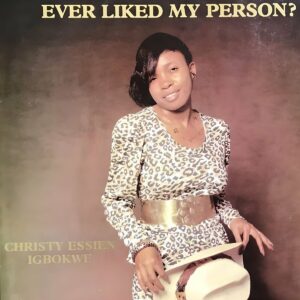
Christy Essien Igbokwe, 1981
« Nigeria’s First Lady of Song », a cosmopolitan pop star who blended disco, reggae, and sentimental country ballads into her Afropop sound. Her 1981 album, especially the lead single, showcases this hybrid country mood and sound.
Then come the guitars: a jangly electric riff that sounds country-picked, almost acoustic, doubled with the warm, gliding tones of a pedal steel guitar. The latter has been a fixture of country music’s sound since at least the 1950s, when Buddy Emmons found a way to bend and stretch guitar notes using a series of pedals (more on this later). Simon later revealed that he’d called on country-rock pioneers The Everly Brothers for backing harmonies. (In 1993, Texas legend Willie Nelson covered « Graceland » and brought its country qualities beautifully to the surface, with his storytelling delivery, snatches of harmonica and a lively fiddle. It’s hard, almost comical, to imagine Nelson giving the same treatment to any of the album’s other tracks.)
Yet « Graceland » still doesn’t exactly sound like a country song. The travelling rhythm, borrowed from South African band the Boyoyo Boys, sounds like it’s dancing to an African groove; and the pedal steel, played by Nigerian Demola Adepoju, sounds like a distant cousin of the American instrument. It’s an uncanny musical juxtaposition, to my ears, like someone merged two disparate parts of my parents’ CD collection. Dolly Parton meets Youssou N’Dour. But they fit together. And a history fits them.

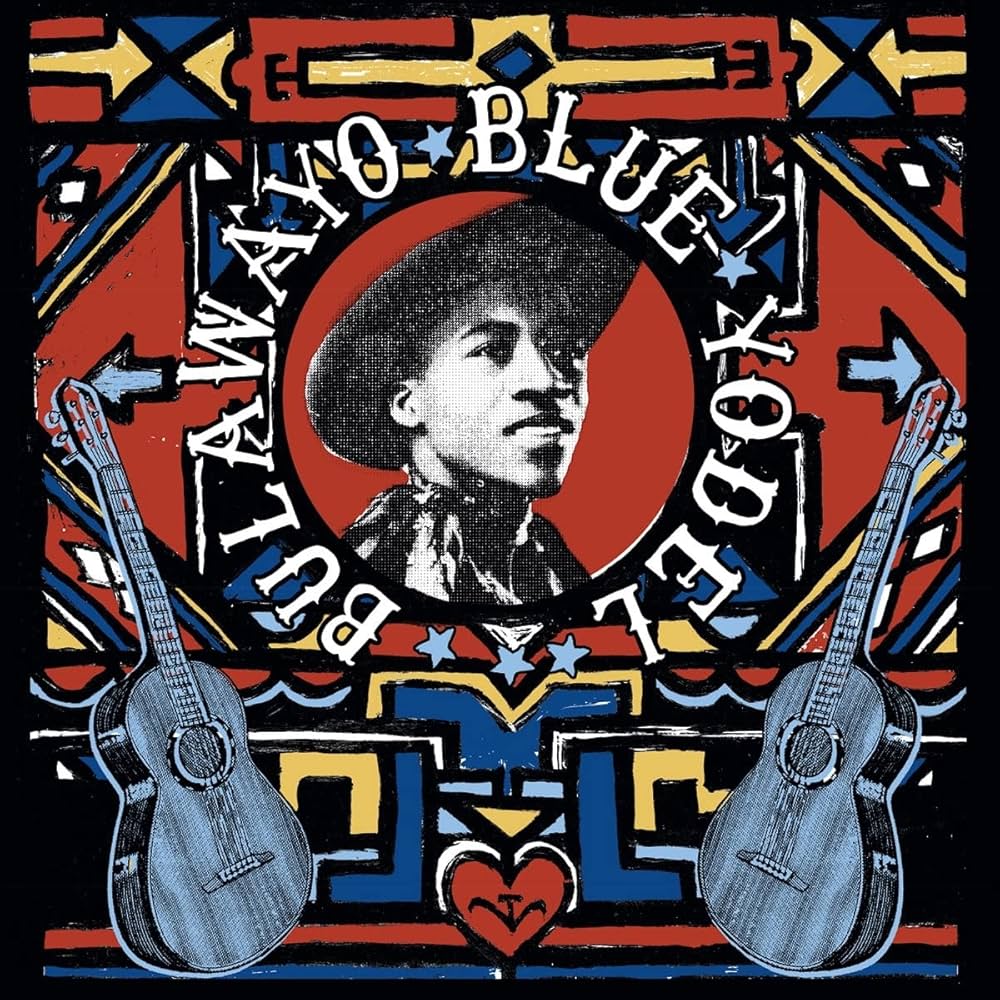
Mississippi Records (2017)
This collection captures some of the earliest African country recordings from the 1940s and 50s. Guitarists like George Sibanda and Sammy Ngaku blended influences like Jimmie Rogers and The Carter Family with local traditions to create unique musical expressions.
For most of my life this history remained hidden. I was steeped in country music from a young age, though subtly. Country quietly shaped my tastes, but growing up in Europe, with parents from Sierra Leone and Jamaica via England, I found it difficult to look past country’s image: the music of white, working-class people in the American South, or the commercial trash that oiled that surface (three chords and a selective truth or two; or just an effective way to sell beer and trucks). But revisiting my parents’ music as an adult allowed me to trace the genre back two generations on both sides of my family. It opened my eyes and ears to an entire universe of music history.

Start with African pop. Throughout the twentieth century, a wide range of popular styles made their way across the continent. Rock and roll spread widely in the late 1950s and early 1960s. A decade or so earlier, Latin dancebeats, especially rumba and salsa, had made a lasting mark in DRC, then called Belgian Congo. Before that, dance bands and orchestras had spread jazz. The spread was often more friction than one-way flow. Each style filtered through a skein of colonial ties, all while mingling with enduring musical traditions.
African troubadours in Stetsons with cowboy-inspired names.
American country was foundational, too. Country hit the continent in the 1920s and 1930s. Early 78s distributed across the British Empire; during and after World War II, African soldiers sometimes returned home with a taste for country music — and with refined guitar or banjo skills.2 The American genre labels of that earlier era — « hillbilly records » or « old-time music » — were largely jettisoned in the process of exporting and importing. But the cowboy image gave the music a significant boost. Cowboy films were shown to workers in African mining camps, and many of those early 78 RPM records featured songs by American hillbilly star Jimmie Rodgers, known for his cowboy motifs and country-blues yodelling. The songs spread in Africa for reasons similar to why they had spread in America, coincident with the adoption of the guitar, with the rise of radio and with a large shift from rural living to industrialized (or colonized) lives in new townships. Rodgers’ solemn songs, and the archetype of the cowboy, struck a chord with people feeling adrift in a changing world, caught between past and future.
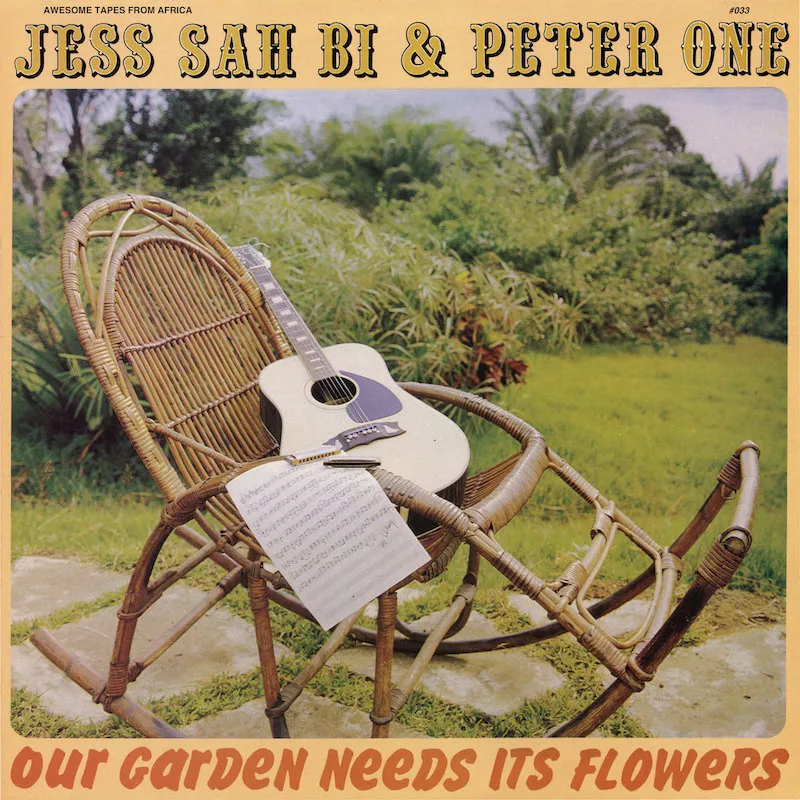
Jess Sah Bi & Peter One, 1985
Released in 1985, the album launched the Ivorian duo to fame across West Africa. When reissued in 2017, its blend of country-rock, Ivorian balladry and protest songs captured the attention of music lovers in the West.
The influence was vast and transformative; you can hear it in 1940s and 1950s recordings from South Africa to Kenya. The African songs could closely mirror Jimmie Rodgers’ melodies and riffs, but often refitted them to regional stories and styles. Much of this music is lost or archived, though recent reissues, such as Olvido and Mississippi Records’ Bulawayo Blue Yodel, offer a glimpse: African troubadours in Stetsons with cowboy-inspired names. How they played their guitars was rooted in indigenous instruments, and they sang about local tensions between tradition and modernity. The neat label « country music » obscures a tangled multitude of sounds. Yes, many African guitarists borrowed elements from Jimmie Rodgers, but Rodgers’ music was itself a blend of many wider musical traditions that had become part of the country genre. For example, George Sibanda’s 1955 song « Ekhaya », which expresses longing for his mother back home, draws on Southern blues and Hawaiian-style slide guitar as much as on cowboy ballads or Appalachian folk.
Back home, Mother is crying
During the days of my absence
Back home, Mother is crying
What had started as a colonial influence blossomed over the decades into its own unique strain of African pop, taking delightful, if unexpected turns. In Sierra Leone, SE Rogie mixed yodels and cowboy whistling into his palm wine songs. The Zimbabwean gospel singer Evangelist Freedom Sengwayo’s ballads echoed Jim Reeves. In Nigeria there was a hint of country in the disco and Afropop of Christy Essien Igbokwe. The pedal steel player on « Graceland », Demola Adepoju, rose to fame as a member of King Sunny Ade’s band, who hit the world stage in 1980 with Juju Music. (Ade incorporated pedal steel into his sound in the first place because he was a big George Jones fan.) The results were idiosyncratic: Adepoju had adapted the tunings of the instrument to better reflect more familiar harmonies of Nigerian instruments like the Goje.3 When you’re struck by the floating pedal steel licks on Juju Music, and later Graceland, this history is what’s striking you.
Maybe country music, already up for grabs, is best grasped far from Nashville.
More: among his peers, Demola Adepoju is also known simply as « Hawaiian ». The pedal steel guitar — staple of American country — originated as the slide or lap steel guitar, also known as the Hawaiian guitar. The instrument found its way to mainland America during the Hawaiian music craze of the early twentieth century, as Hawaiian players toured the Deep South. Jimmie Rodgers, for one, was captured by it and featured artists like Joe Kaipo and Lani McIntire on his records. The sliding guitar appeared on popular records in Greece and South Africa around the same time.4

Armed with this knowledge as an adult, I could hear « Graceland » better. It is a hidden country song that channels the hidden global history of country music that has always been there.

I may not have always liked country music, but it did always make me feel something. Was it nostalgia? It’s a familiar descriptor for
country, with its many songs of homesickness or a looming sense of the past, and with its occasionally myopic desire to return to the way things were back when. « Graceland »’s lyrics certainly reflect on losses of the past, a broken marriage, a longing to feel at home again. But the forward motion complicates this narrow nostalgia. « Graceland » is a song about a literal journey — the narrator’s road trip through the American south with his nine-year-old son —
The Mississippi Delta
Was shining like a national guitar
I am following the river
Down the highway
Through the cradle of the Civil War
— that becomes a metaphorical journey, in search of grace and understanding. What I hear is someone hoping to transcend their past rather than return to it:
But I’ve reason to believe
We all will be received
In Graceland
What makes a song « country » or not is unsurprisingly subjective. And genre labels are always somewhat arbitrary, tacked flatly onto evolving musical traditions. But over time the label itself can thicken, can take on layers of tension and contradiction — can earn distinction. To speak of « global country music » is to speak of unexpected travels across cultures and continents. Maybe country music, already up for grabs, is best grasped far from Nashville.
The idea of anti-apartheid country music is counterintuitive but profound.
In 1985, Jess Sah Bi and Peter One, a country-folk duo from Ivory Coast, released their debut album Our Garden Needs Its Flowers, launching them into regional stardom across West Africa. Released a year before Graceland, it was likewise an album of journeys — moving in the reverse direction — from West Africa to the American Southwest. The duo sang in French, Gouro and English, and blended Ivorian balladry with a heavy dose of 1970s country-rock. Sah Bi and One have even cited Simon’s earlier work as an inspiration: their intricate harmonies recall Simon & Garfunkel.
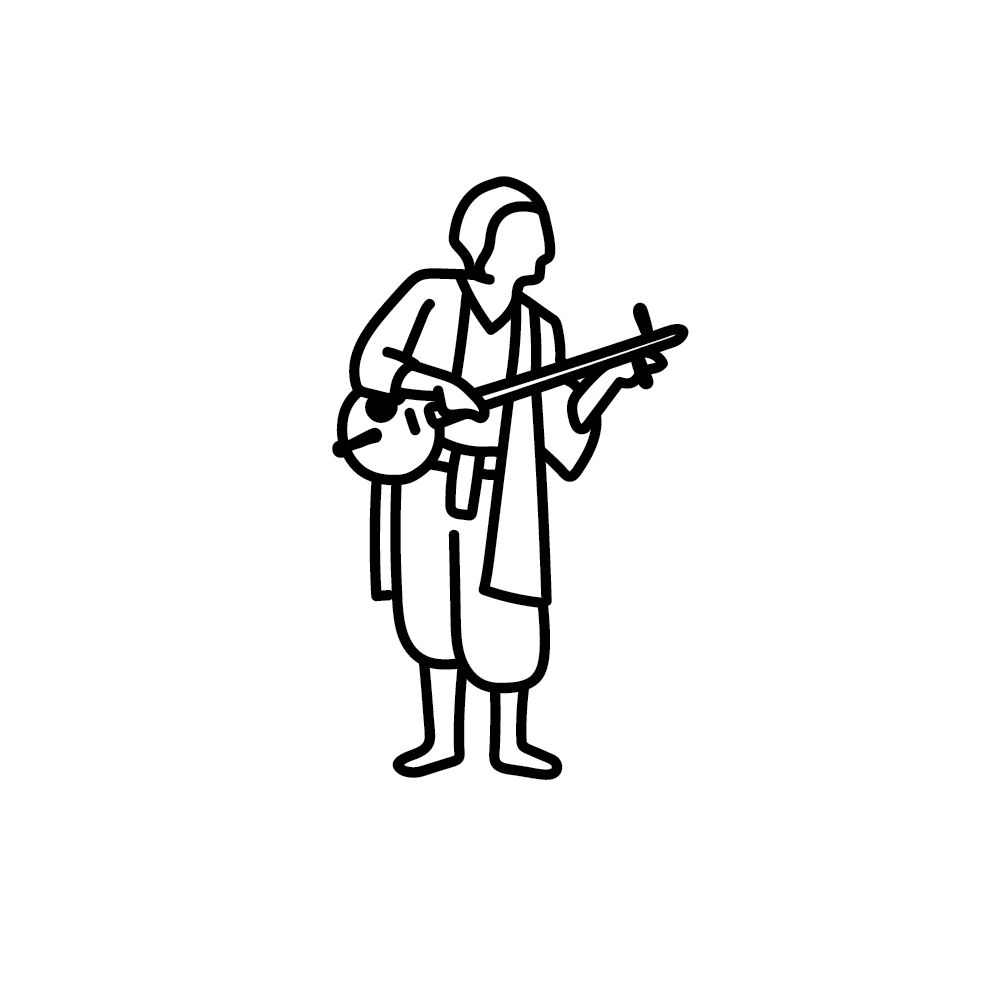
One of the album’s most enduring songs, « Apartheid », calls for an end to the brutal racial segregation in South Africa, namechecking Namibia, Lesotho and Zimbabwe, too. The song is drenched in nostalgia. A pedal steel guitar wails and a harmonica howls across the track, working in tandem with the duo’s soaring, yearning, bittersweet harmonies. The music draws on Ivorian village songs, reflecting a sense of tradition, loss and looking back. Yet it is also upbeat, almost optimistic, moving with the travelling rhythm of a drive-time country song. The idea of anti-apartheid country music is counterintuitive but profound; the juxtaposition of past and future reflects the sentiment of the struggle.

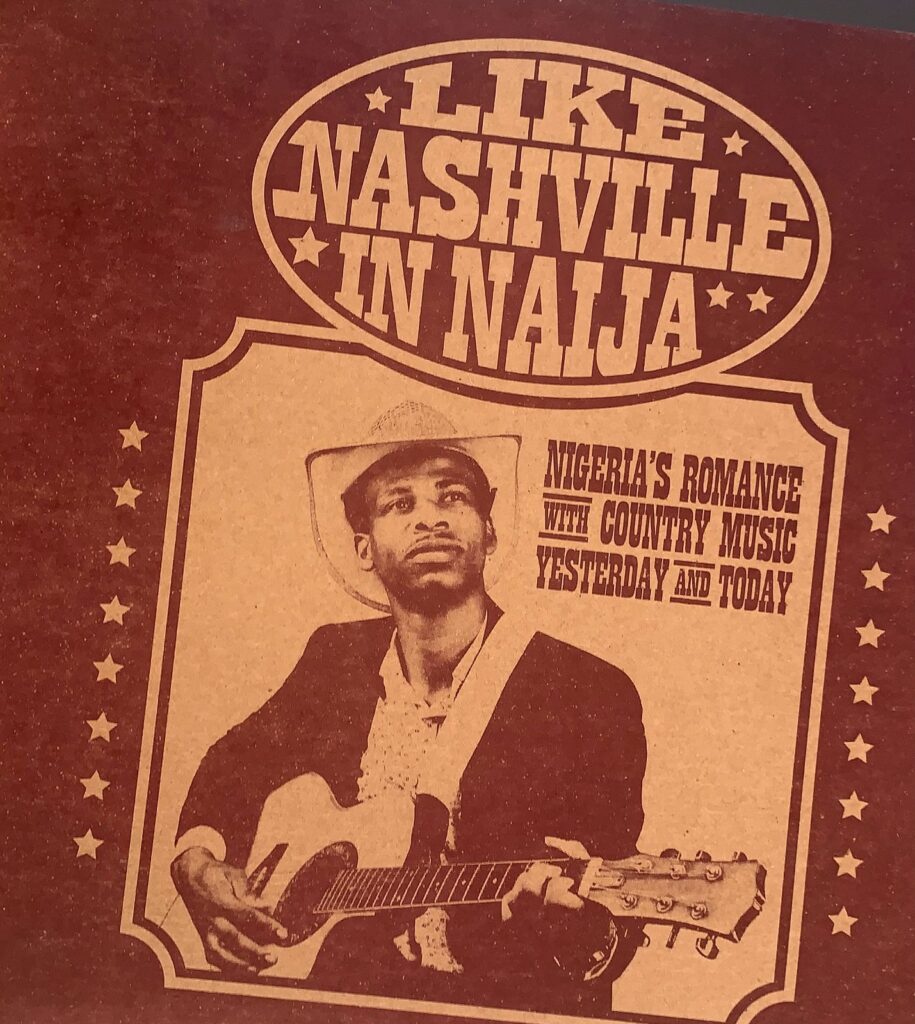
Like Nashville in Naija
Comb & Razor Records, 2017
This cult hit by ethnomusicologist Uchena Ikonne explores Nigeria’s long love affair with country music from the 1950s to today, with a peak in the 1970s and 80s. The collection features artists rarely heard outside the region, from Emma Ogosi’s twangy Afro-disco to Rennie Cotton Heart’s achy-breaky country-pop.
Our Garden Needs Its Flowers was reissued for Western ears in 2017, by the crate-digging label Awesome Tapes From Africa. The story went that the duo had picked up American country sounds listening to the radio growing up. The truth is more nuanced and contradictory.
When I interviewed Peter One in 2022, he revealed with a laugh that « I didn’t even know the name country music until [after] we started performing ».5 He’d initially absorbed the rootsy, acoustic sounds not from American artists, but via West African ones, like the Benin guitarist GG Vickey. Only after performing in public did he hear Simon & Garfunkel’s twangy « The Boxer », or Crosby, Stills, Nash and Young. « People who knew about music in Europe and the US, they are the ones who labelled it country — we just decided to roll with it. » He added: « for marketing purposes. »

- Other artists accused of violating the boycott — Rod Stewart, Queen — did so for performance fees (and promised not to return). Simon’s motives were different; to work with local artists. He had also turned down lucrative offers to perform. Still, resolution 35/206 from the UN General Assembly was clear: « The United Nations General Assembly requests all states to prevent all cultural, academic, sporting, and other exchanges with South Africa, appeals to writers, artists, musicians, and other personalities to boycott South Africa, and urges all academic and cultural institutions to terminate all links with South Africa. » (« Paul Simon’s Graceland: the acclaim and the outrage », Guardian, 2012). ↩︎
- The Zambian music pioneer Alick Nkhata honed his banjo chops while entertaining British Colonial Auxiliary Forces in Myanmar. ↩︎
- Jessie Brent, « From Hawaii to Nashville to Lagos: A Pedal Steel Primer », in Afropop Worldwide (5 October 2017). ↩︎
- See Kostas Bezos and The White Birds (2017) and the forthcoming record African Steel (2025). ↩︎
- From a radio interview I conducted with Peter One on my radio show « Reimagining Country » (May, 2022) NTS Radio. ↩︎